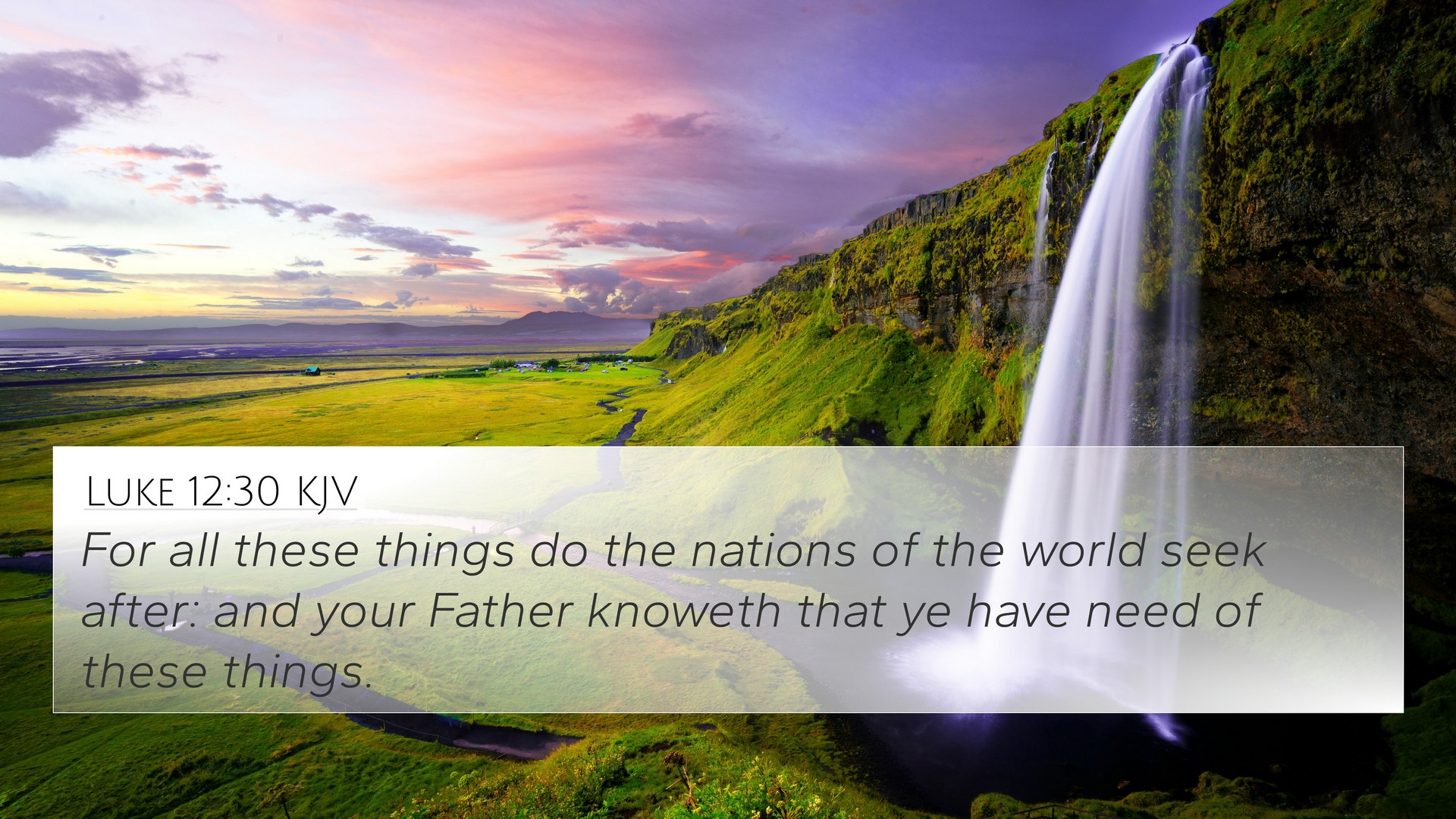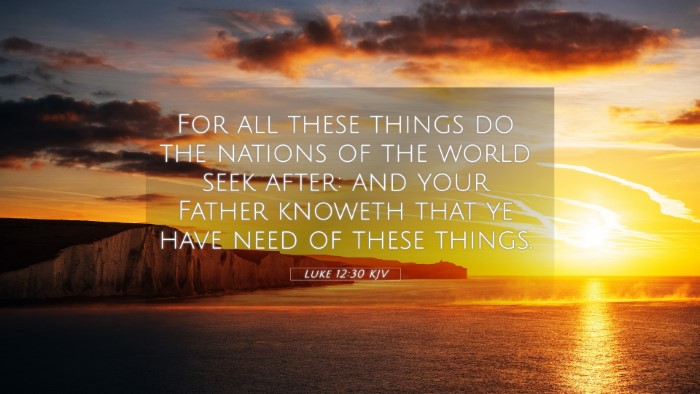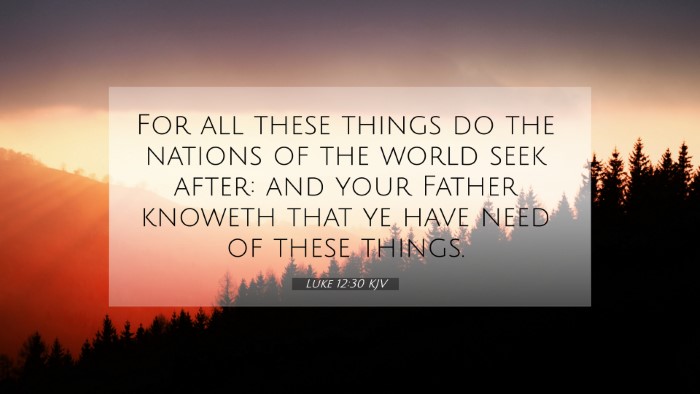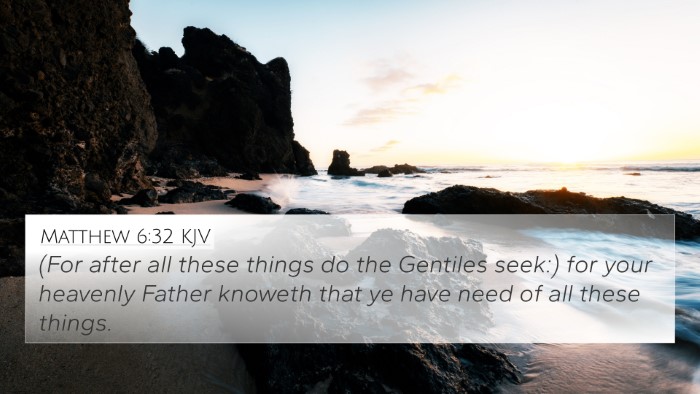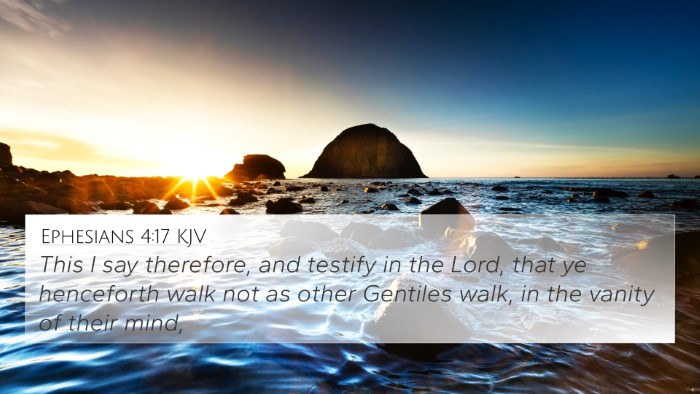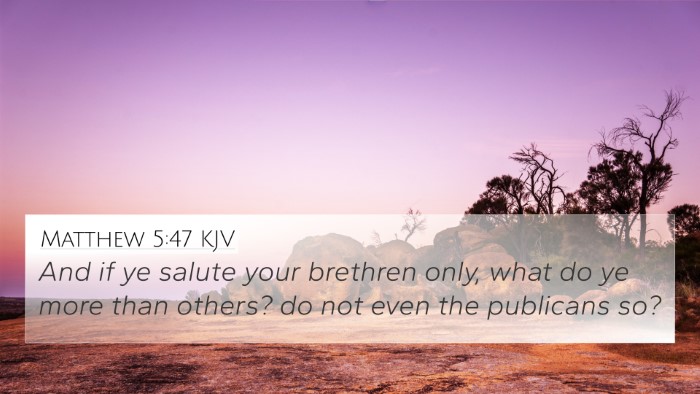Meaning and Interpretation of Luke 12:30
Luke 12:30 states, "For all the nations of the world seek after these things, and your Father knows that you need them." In this verse, Jesus emphasizes the nature of human need and divine provision. It reveals the disparity between the concerns of the world and the assurance that God is aware of our needs, fostering faith and releasing anxiety regarding material concerns.
Understanding the Context
In Chapter 12 of Luke, Jesus addresses themes of worry and materialism. This verse is part of a broader discourse where he teaches his disciples not to be anxious about worldly needs.
Key Insights from Commentaries
-
Matthew Henry: Henry comments on the importance of recognizing God’s provision and encourages believers to trust that God knows their needs better than they do, contrasting worldly pursuits with divine priorities.
-
Albert Barnes: Barnes asserts that the verse underscores God’s omniscience regarding our needs. He encourages believers to seek the kingdom of God first, as earthly worries distract from spiritual growth.
-
Adam Clarke: Clarke focuses on the futility of a life spent seeking material goods. He highlights that while nations may strive for these things, believers must place their trust in God, who sees and provides for their needs.
Connecting Bible Verses
This verse connects with multiple scriptures that emphasize God's provision and the futility of worrying about material needs. Below are some key cross-references:
- Matthew 6:31-33: "Therefore do not be anxious, saying, ‘What shall we eat?’ or ‘What shall we drink?’ or ‘What shall we wear?’ … But seek first the kingdom of God and his righteousness, and all these things will be added to you."
- Philippians 4:19: "And my God will supply every need of yours according to his riches in glory in Christ Jesus."
- 1 Peter 5:7: "Casting all your anxieties on him, because he cares for you."
- Matthew 6:25: "Therefore I tell you, do not be anxious about your life, what you will eat or what you will drink, nor about your body, what you will put on. Is not life more than food, and the body more than clothing?"
- Lamentations 3:22-23: "The steadfast love of the Lord never ceases; his mercies never come to an end; they are new every morning; great is your faithfulness."
- Romans 8:32: "He who did not spare his own Son but gave him up for us all, how will he not also with him graciously give us all things?"
- James 1:17: "Every good gift and every perfect gift is from above, coming down from the Father of lights…"
Application and Relevance
In a world driven by consumerism and anxiety, Luke 12:30 serves as a poignant reminder for believers to recalibrate their focus. It invites a deeper understanding of God's character as a provider and protector. In practical terms, the application of this verse suggests trusting in God during times of uncertainty and embracing a faith-driven pursuit of spiritual rather than material wealth.
Inter-Biblical Dialogue
Engaging with related scripture reveals a holistic perspective on divine provision, encouraging believers through cross-referencing and linking Bible scriptures. This interconnectedness helps to reinforce the promises of God found throughout the Bible, highlighting how themes of trust, provision, and faith are woven into the fabric of scripture. By identifying connections between Old and New Testament teachings, we can cultivate a richer understanding of God's unwavering support.
Tools for Bible Cross-Referencing
Utilizing a Bible concordance or Bible cross-reference guide can greatly enhance our understanding of similar verses and themes. These tools help uncover the relationships between different passages, facilitating a comprehensive Bible cross-reference system. Suggestions for further study might include:
- Cross-reference Bible study methods to deepen scriptural comprehension.
- Identifying themes through Bible chain references.
- Utilizing comprehensive Bible cross-reference materials to aid in sermon preparation.
Conclusion
Luke 12:30 provides a significant perspective on trust and divine provision, encouraging believers to focus on the eternal rather than the temporal. By studying this verse in conjunction with others, one can appreciate the encouraging and cohesive message of God's care for His people across the biblical narrative.
